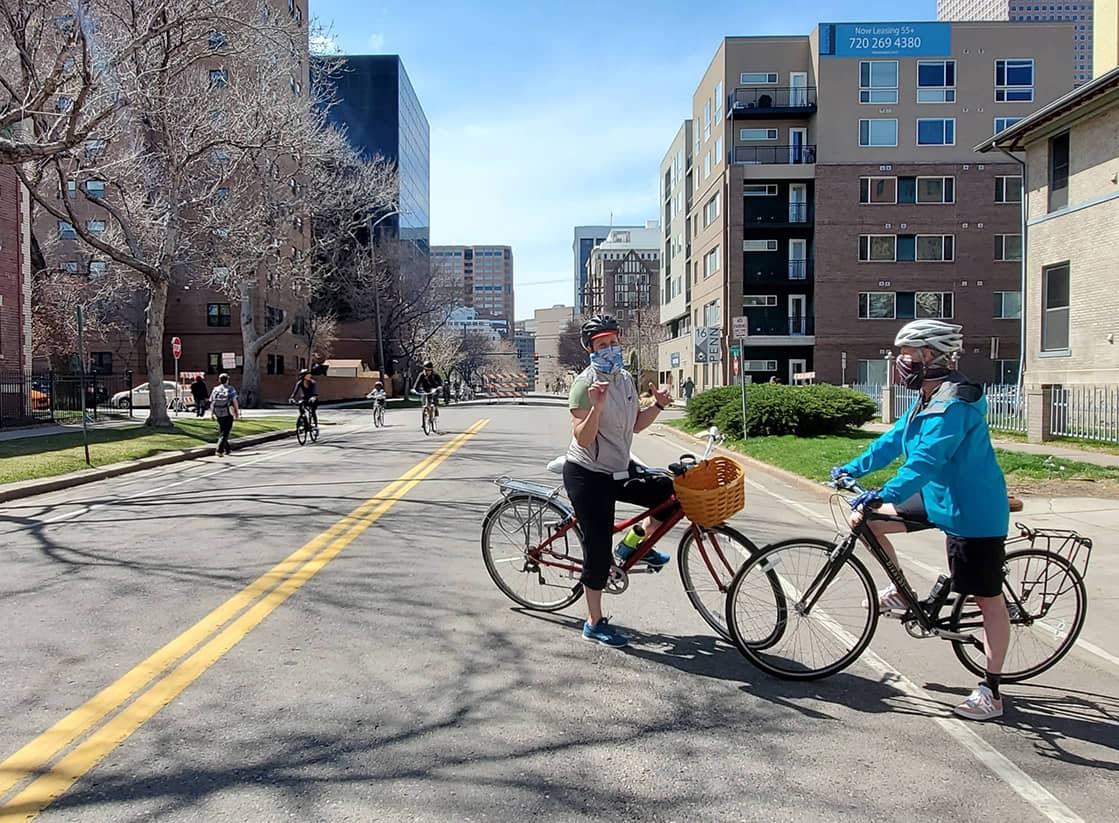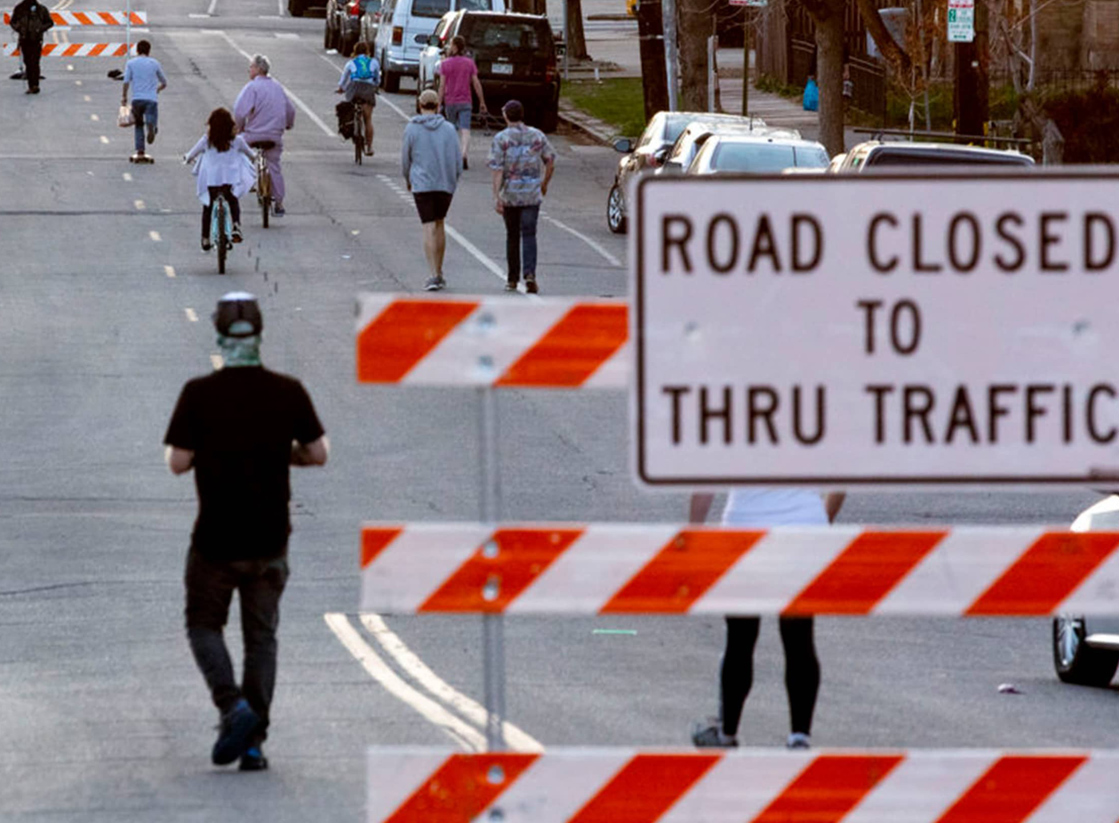Denver Department of Transportation & Infrastructure | Temporary Recreation Streets
Innovative Solutions and Safety Enhancements through Smart Work Zone
PROJECT NAME
Temporary Recreation Streets
AWARD
2020 WTS Innovative Transportation Solution of the Year
ORGANIZATION
Department of Transportation & Infrastructure
“This project allowed for additional space for the public to get out and enjoy the best Colorado has to offer, especially during such a difficult time” says Cindy Patton, Director of Traffic Operations.
In response to COVID-19 and Colorado’s Stay at Home Order, The Department of Transportation & Infrastructure moved quickly to rethink how the right-of-way (ROW) can better serve our residents and businesses during a time of crisis. Denver’s Temporary Recreation Streets (T-RECS) or “shared streets” program closed select roadways to through traffic to create safe and high-comfort space for Denver residents to walk, bike, and run while complying with social distancing requirements. Phase 1 – 4 included 11 streets (~7.5 miles) that were converted to “T-RECS” starting on April 4th, 2020.
The process to select locations came from a robust, data-driven analysis that looked at areas of the City that are in a park desert (> 5-minute walk to a park or parkway) and areas adjacent to parks that were experiencing significant overcrowding. Once specific areas were identified, corridors were scored based on a variety of criteria such as population density, equity indexes, etc. to create a prioritization score that was used for phasing implementation.
Traffic control barricades were set up in a way to only allow local traffic and slow down permitted vehicles, creating a safe and comfortable space for the surrounding neighborhood to use to recreate or move about Denver. Large ‘slow down shared street’ signs were installed on all barricades to broadcast the change in roadway expectations and informative posters were dispersed through the corridors explaining the program and reinforcing social distancing requirements. Over 10,000 people a day were walking or rolling on a T-RECS corridor, helping keep communities around the City stay stable and healthy during uncertain times.
The T-RECS program was conceived, planned, and implemented in just a week to act quickly at the height of the pandemic and has since been universally praised by residents, local politicians, and cities around the world who quickly followed suit with their own programs. Originally slated to stay in place for 30 days, an outpouring of appreciation from residents and unanimous support from all 13 Councilmembers and the Mayor has allowed Denver to keep the program in place through fall 2020 and potentially longer.
Results from the Denver Street Partnership survey (800+ responses) show that 65% of respondents walk or roll in a T-RECS corridor multiple times a week and 87% of respondents would like the initiative to continue after the pandemic. Bicycle, pedestrian, and vehicle counts and vehicle speeds have been recorded for much of the initiative and indicate impressive results:
- Over 10,000 people per day walked or rolled on a T-RECS corridor during the summer of 2020
- On average, vehicle traffic is down 77%
- On average, walking and rolling traffic is up 287%
- On average, vehicle speeds are down 28%
- The average vehicle speed is 12 MPH


